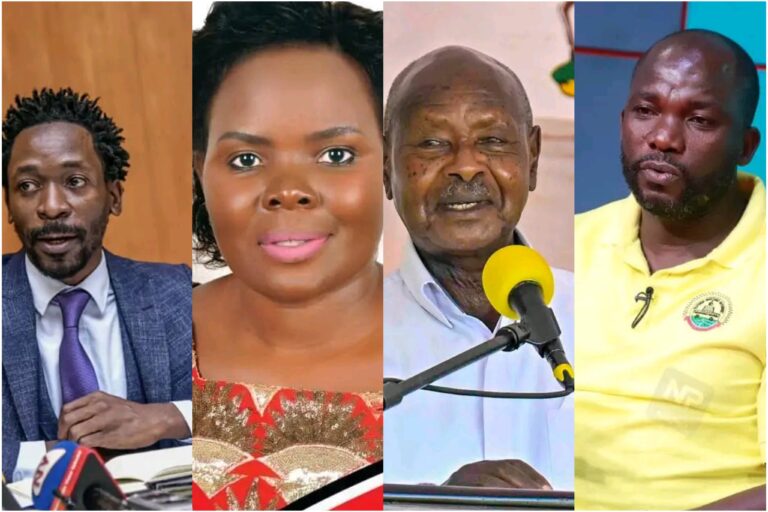The controversy surrounding President Yoweri Museveni’s directive to the police to deny bond to suspected thieves has continued to escalate, with several Members of Parliament weighing in on the issue.
Hon. Gorreth Namugga has criticized the President’s directive, arguing that instead of focusing on denying bond, Museveni should prioritize improving the well-being of police officers and strengthening their capacity.
“This would be a more effective way to address the issue of crime and ensure that the police are able to carry out their duties effectively,” Namugga said.
However, Hon. Linos Ngompek has defended the President’s directive, clarifying that Museveni did not say that people should be denied bond outright.
“He specifically referred to thieves whose files have been summoned by the court,” Ngompek explained.
Meanwhile, Hon. Denis Ssekabira has expressed concerns about the President’s suggestion to introduce the army into villages to address crime.
“We all know it’s the police’s responsibility to protect people and their property,” Ssekabira said. “Instead of bringing in the army, the police should be empowered to do their job effectively.”
The debate comes after President Museveni’s end-of-year address, in which he directed the police not to grant bond to suspected village thieves. The directive has been met with criticism from various quarters, with some arguing that it is unconstitutional and could lead to abuse of power.
Relatedly the Uganda Law Society President Isaac Ssemakadde also responded to President Yoweri Museveni’s recent directive banning police bonds for suspects, calling it a blatant attack on human rights.
In his New Year’s address, Museveni ordered the police to stop issuing bonds to suspects he described as village thieves, citing the need to combat rising crime, particularly in rural areas.
Museveni argued that the practice of granting police bonds and court bail to suspects has contributed to increased crime, as offenders are released back into their communities without facing the consequences.
He emphasized the importance of firm legal handling of criminals, citing the example of the Karamoja Region, where the military court’s strict approach has significantly reduced crime.
The President also warned that if the police and local authorities fail to address the issue of petty crime, he will deploy the Uganda People’s Defence Forces (UPDF) and Local Defence Unit (LDU) personnel to empower farmers and wealth creators to safeguard their property.
In response, Ssemakadde condemned Museveni’s directive, stating that it violates Articles 23, 28(3)(a), and 99 of the Constitution. Ssemakadde argued that the move is a stark reminder of the colonial legacy of repression and mass incarceration that continues to plague Uganda.
Ssemakadde emphasized that police jail stints and prison congestion are hallmarks of colonial trauma that must be addressed. He vowed to deal firmly with errant police officers and malicious prosecutors, citing relevant sections of the Human Rights (Enforcement) Act.
“Mr. President, police jail stints and prison congestion are hallmarks of colonial trauma we are committed to ending. The Radical New Bar will not stand idly by while our justice system perpetuates these injustices. We shall deal firmly with errant police officers and malicious prosecutors through Sections 10, 11, 12, 14 and 15 of the Human Rights (Enforcement) Act.”, reads the statement.
This is not the first time that President Museveni is telling the Judiciary and other justice enforcement agencies to deny bond and bail to certain offenders.
Museveni had in the previous years strongly called for the denial of bail for suspects of murder, rape and terrorism.
In July at the pass out of Permanent Secretaries who were undergoing a Retreat in Kankwanzi at the National Leadership Institute, Museveni also added corruption to the list of the offences that he deemed capital in nature and the perpetrators to be denied bail.
In November, Museveni also added Emyooga and Parish Development Model money defaulters to his list of capital offences and asked police to equally deny them bond.
The Constitution of Uganda however grants the powers to deny or grant bail to judicial officers who are also supposed to exercise those powers judiciously.
However, following several statements against Bail, the Chief Justice in 2022 made guidelines on issuance of bail which the public has since described as harsh and tough and have since challenged them before the Courts of Law.

